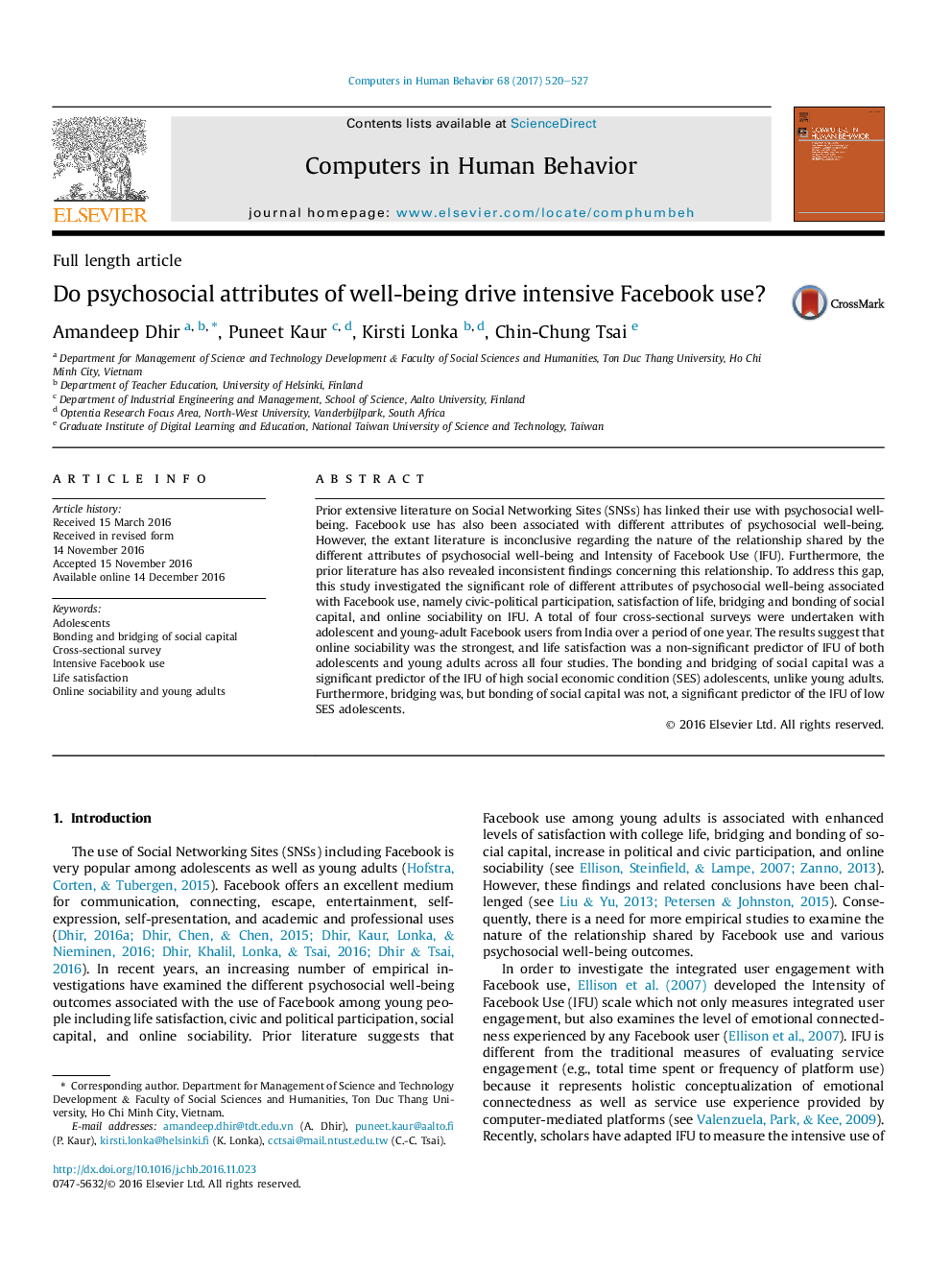| Article ID | Journal | Published Year | Pages | File Type |
|---|---|---|---|---|
| 4937710 | Computers in Human Behavior | 2017 | 8 Pages |
Abstract
Prior extensive literature on Social Networking Sites (SNSs) has linked their use with psychosocial well-being. Facebook use has also been associated with different attributes of psychosocial well-being. However, the extant literature is inconclusive regarding the nature of the relationship shared by the different attributes of psychosocial well-being and Intensity of Facebook Use (IFU). Furthermore, the prior literature has also revealed inconsistent findings concerning this relationship. To address this gap, this study investigated the significant role of different attributes of psychosocial well-being associated with Facebook use, namely civic-political participation, satisfaction of life, bridging and bonding of social capital, and online sociability on IFU. A total of four cross-sectional surveys were undertaken with adolescent and young-adult Facebook users from India over a period of one year. The results suggest that online sociability was the strongest, and life satisfaction was a non-significant predictor of IFU of both adolescents and young adults across all four studies. The bonding and bridging of social capital was a significant predictor of the IFU of high social economic condition (SES) adolescents, unlike young adults. Furthermore, bridging was, but bonding of social capital was not, a significant predictor of the IFU of low SES adolescents.
Related Topics
Physical Sciences and Engineering
Computer Science
Computer Science Applications
Authors
Amandeep Dhir, Puneet Kaur, Kirsti Lonka, Chin-Chung Tsai,
